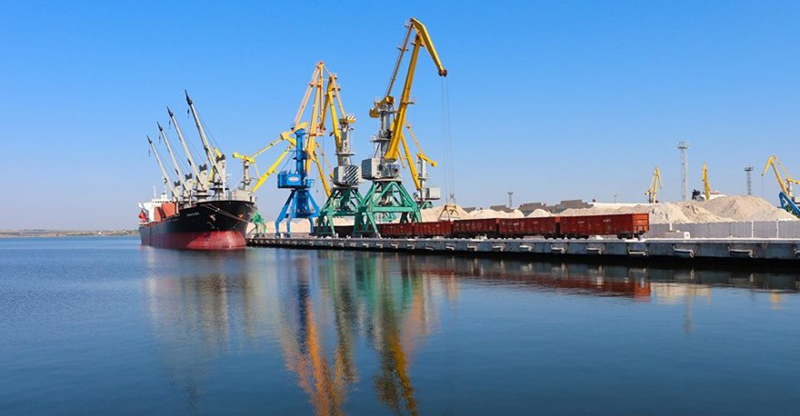The port of Mykolaiv can be added to the updated “grain agreement”, – UN

The UN Under-Secretary-General for Humanitarian Aid, Martin Griffiths, said that he was “relatively optimistic” about the extension of the agreement that allowed for the resumption of Ukrainian grain exports through the Black Sea.
Earlier this month, Griffiths visited Moscow with UN trade chief Rebecca Greenspan to discuss the deal with Russian officials, which also aims to facilitate exports of Russian grain and fertilizer to global markets.
Under the July 22 agreement, Ukraine was able to resume Black Sea grain and fertilizer exports that were halted when Russia invaded its territory on February 24. The agreement is agreed for 120 days.
“We’re very keen to get it extended as soon as possible. It’s important for the market. I’m still relatively optimistic that we’ll get there. We’re working hard,” Griffiths said.
The United Nations is working to extend the agreement for another year and to facilitate the inspection of vessels by representatives of the UN, Turkey, Russia and Ukraine. More than 150 ships were recently delayed.
“I think we should take another look at some of these procedures to see if we can simplify them in some way,” Griffiths said.
The UN representative also suggested that Ukraine may try to expand the export agreement by including one more port – Mykolaiv.
Russia criticizes the agreement due to the fact that its own exports are still limited, and Ukrainian grain allegedly does not reach the countries that need it. The UN representative once again denied these claims.
It will be recalled that on July 22 in Istanbul, at the suggestion of the United Nations, Ukraine, Turkey and UN Secretary General Antonio Guterres signed the Initiative on safe transportation of grain and food products from the Ukrainian ports of Odesa, Chornomorsk and Pivdenny.
On August 1, as part of the implementation of the agreements, the first ship – RAZONI under the flag of Sierra Leone – departed from the Odesa port. The ship was carrying 26,000 tons of Ukrainian corn.
Before the start of the UN General Assembly in September, EU High Representative Josep Borrell said that the European Union had not introduced any sanctions on the supply of Russian-made food and fertilizers to foreign markets, but international market operators themselves did not want to deal with a state that kills and kidnaps civilians in the neighboring country and provokes a global food crisis.
Read also
Wheat in Southern Brazil Impacted by Dry Weather and Frosts
Oilseed Industry. Leaders and Strategies in the Times of a Great Change
Black Sea & Danube Region: Oilseed and Vegoil Markets Within Ongoing Transfor...
Serbia. The drought will cause extremely high losses for farmers this year
2023/24 Safrinha Corn in Brazil 91% Harvested
Write to us
Our manager will contact you soon



